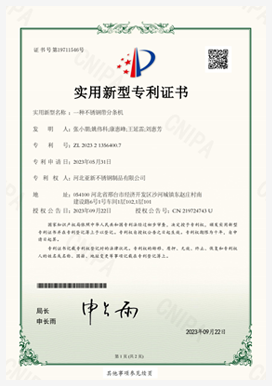Innovative Field Chopper Harvesters Enhancing Agricultural Efficiency and Productivity in Modern Farming
The Evolution and Benefits of Field Chopper Harvesters
In modern agriculture, efficiency and productivity have become critical determinants of success. One of the innovative solutions that has emerged to enhance these aspects is the field chopper harvester. This powerful machine has transformed the way crops, particularly forage, are harvested, offering numerous advantages over traditional harvesting methods.
What is a Field Chopper Harvester?
A field chopper harvester is a specialized agricultural machine designed for cutting and collecting forage crops, such as corn, grass, or silage. Unlike conventional grain harvesters, which separate grain from the plant, field choppers cut the entire plant into smaller pieces, making it easier to transport and process. This method not only ensures better preservation of the nutrients found in the forage but also allows for more efficient fermentation when creating silage.
History and Development
The evolution of field chopper harvesters can be traced back to the early 20th century, when the first mechanized systems were developed. Over the decades, advancements in technology have led to the creation of highly sophisticated machines equipped with features such as GPS navigation, automatic processing controls, and real-time data collection. These innovations have significantly enhanced the efficiency and precision of field choppers, allowing farmers to maximize their yield while minimizing labor costs.
Key Features and Technologies
Modern field chopper harvesters come with a variety of features designed to improve their performance
. One notable aspect is their cutting mechanism, which typically includes a series of sharp blades that can be adjusted for different crop types and desired chop length. This adaptability is crucial, as it allows farmers to cater to specific livestock needs or processing requirements.Additionally, many field choppers are equipped with advanced technology like yield monitors and GPS guidance systems. These tools help farmers optimize their harvesting practices, track crop yield in real time, and minimize waste. The data collected can be analyzed to make informed decisions regarding crop rotation, fertilization, and overall farm management.
field chopper harvester

Benefits of Using Field Chopper Harvesters
The adoption of field chopper harvesters brings several advantages to agricultural operations
1. Increased Efficiency Field choppers can harvest large areas in a fraction of the time it would take using traditional methods. This speed not only saves labor hours but also allows farmers to take advantage of optimal weather conditions for harvesting.
2. Better Crop Quality By chopping the forage into smaller pieces, field choppers promote better compaction in silage storage, which helps to preserve the nutritional quality of the feed. This leads to healthier livestock and better productivity.
3. Reduced Waste These harvesters are designed to minimize crop loss during harvesting. Their precise cutting abilities ensure that more of the plant is collected, reducing the amount of material left in the field.
4. Versatility Field choppers can handle various crop types, making them a valuable tool for mixed farming operations. This versatility enables farmers to adapt their harvesting strategies based on the crops they are growing.
5. Labor Savings With automated features and higher throughput, field chopper harvesters significantly reduce the need for manual labor, allowing farmers to allocate their workforce to other critical operations.
Conclusion
Field chopper harvesters represent a significant leap forward in agricultural technology, enhancing both efficiency and productivity in forage harvesting. As the agricultural landscape evolves, these machines will continue to play a crucial role in meeting the food demands of the growing global population. By investing in such advanced equipment, farmers can ensure not only the success of their operations but also contribute to sustainable agricultural practices that benefit the environment and society as a whole.
Latest news
-
When to Upgrade Your Old Forage HarvesterNewsJun.05,2025
-
One Forage Harvester for All Your NeedsNewsJun.05,2025
-
Mastering the Grass Reaper MachineNewsJun.05,2025
-
How Small Farms Make Full Use of Wheat ReaperNewsJun.05,2025
-
Harvesting Wheat the Easy Way: Use a Mini Tractor ReaperNewsJun.05,2025
-
Growing Demand for the Mini Tractor Reaper in AsiaNewsJun.05,2025







